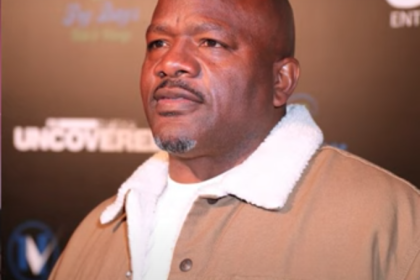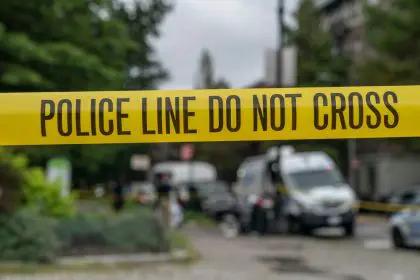The recent suicide of Roger Golubski, a former Kansas City police detective accused of heinous crimes, has left many unanswered questions. Golubski’s death ahead of his trial on multiple felony charges has sparked outrage among victims and advocates who see it as yet another example of justice denied.
A history of alleged abuse and corruption
Golubski served in law enforcement from 1975 to 2010, but his career was marred by accusations of exploitation, coercion and violence against some of the most vulnerable members of his community. The six felony counts he faced painted a grim picture, including repeated sexual assaults on two Black women, one of whom was only 13 when the abuse began. Moreover, Golubski was accused of leveraging his authority to force victims into implicating innocent Black men in crimes, leading to wrongful convictions and shattered lives.
Such allegations suggest not just the actions of a rogue officer but a broader culture of complicity and silence that enabled his behavior to persist for decades. These patterns echo the case of Daniel Holtzclaw, a former Oklahoma City police officer convicted in 2015 of multiple sexual assaults against Black women. Holtzclaw’s crimes and eventual conviction drew attention to how systemic racism and power imbalances often shield perpetrators within law enforcement from accountability. Unlike Holtzclaw, however, Golubski’s death before trial has left victims without their day in court.
The gravity of the allegations
The details of Golubski’s alleged misconduct are harrowing. One victim, identified in court documents as S.K., recounted how Golubski lured her into his patrol car under false pretenses and repeatedly assaulted her while threatening her life. Another woman described years of abuse that began shortly after her sons were implicated in a homicide case Golubski investigated.
These allegations align with a pattern of exploitation: targeting those least likely to be believed, including Black women living in poverty, those with criminal records, and minors. By preying on individuals with limited recourse, Golubski weaponized his badge to terrorize his community rather than protect it.
A system that failed the vulnerable
Golubski’s death is not just the end of a single case but a stark reminder of systemic failures. Federal prosecutors have linked him to a larger network of corruption, alleging that he protected known criminals, including drug kingpin Cecil Brooks, who operated an underage sex trafficking ring. While these claims remain unproven in court, they point to a troubling pattern of law enforcement shielding its own, even at the expense of public safety.
Victims and advocates argue that Golubski’s actions did not occur in a vacuum. Just as Holtzclaw’s crimes were initially dismissed by those in power, Golubski’s alleged misconduct raises questions about the role of other officers and judicial officials who either ignored or actively covered up his behavior. The broader implications are clear: a justice system that prioritizes self-preservation over accountability leaves countless lives damaged in its wake.
The community’s quest for justice
For the victims, Golubski’s suicide represents a bitterly ironic twist. While his death spares him from facing his accusers in court, it denies those same accusers the chance to seek closure. Lamonte McIntyre, who spent 23 years wrongfully imprisoned due to Golubski’s alleged misconduct, is one of many left grappling with unresolved anger and frustration. McIntyre’s case was a turning point that brought Golubski’s abuses into the public eye, but his exoneration did little to repair the deep wounds inflicted on his life and others.
Similar to Holtzclaw’s victims, Golubski’s accusers fought against a system designed to discredit them. The burden of proof often fell unfairly on the survivors, forcing them to relive their trauma while seeking justice. Yet, unlike Holtzclaw’s eventual conviction, Golubski’s death leaves many wondering whether justice was ever truly possible in a system so deeply flawed.
Lessons from systemic failures
Both Golubski’s and Holtzclaw’s cases highlight the dangers of unchecked power in law enforcement, particularly when wielded against marginalized communities. The absence of robust oversight mechanisms and the persistence of racial and gender biases create an environment where predators can thrive. Reforming this broken system requires more than rhetoric; it demands tangible action, including independent oversight bodies, better support for victims and accountability at every level of law enforcement.
Golubski’s death may close one chapter, but it opens another: a broader conversation about how to prevent future abuses. Addressing the systemic failures that allowed him to operate unchecked for decades is crucial if communities hope to rebuild trust in law enforcement. Advocates argue that this starts with centering the voices of victims and dismantling the structures that perpetuate cycles of harm.
Moving forward
As Kansas City and the nation reckon with Golubski’s legacy, his case underscores the urgent need for systemic change. The parallels to Daniel Holtzclaw’s crimes serve as a stark reminder that such abuses are not isolated incidents but symptoms of deeper structural issues. For the victims left behind, justice may remain elusive, but their courage in coming forward sheds light on the path to accountability.
Real reform means ensuring that no officer — regardless of rank — is above the law. It means creating systems that value transparency and prioritize the well-being of the communities they serve. Only then can we hope to prevent future tragedies and honor the resilience of those who refuse to be silenced.
If you or someone you know needs help, contact the National Suicide Prevention Lifeline at 800-273-8255 (TALK) or text or call the Suicide & Crisis Hotline at 988.
If you or someone you know is dealing with or has dealt with sexual violence, contact RAINN at 800.656.HOPE (4673) or chat online.
















